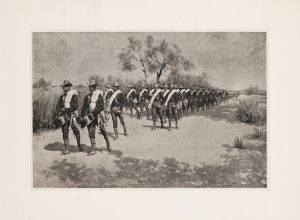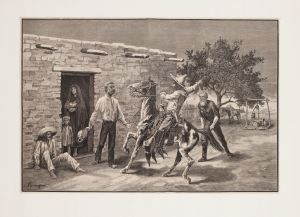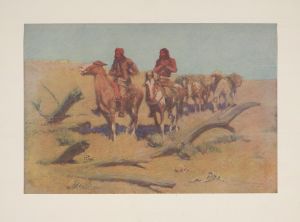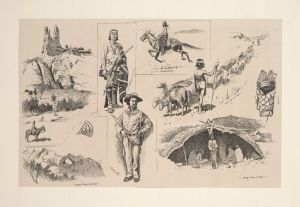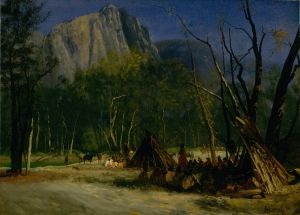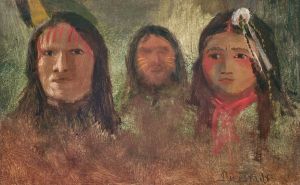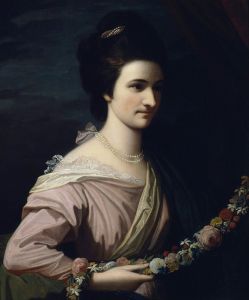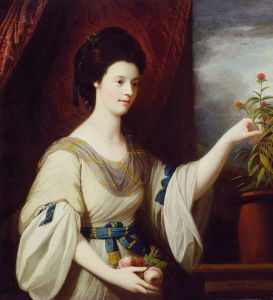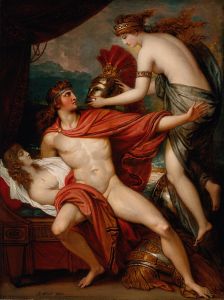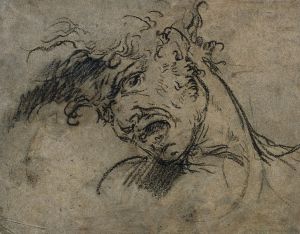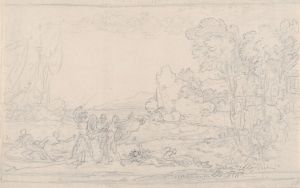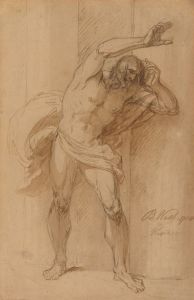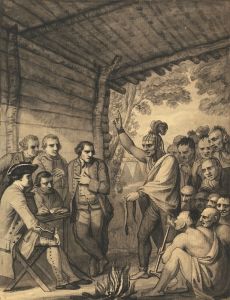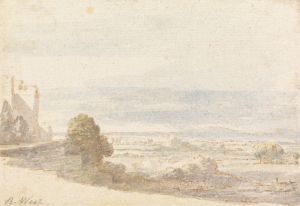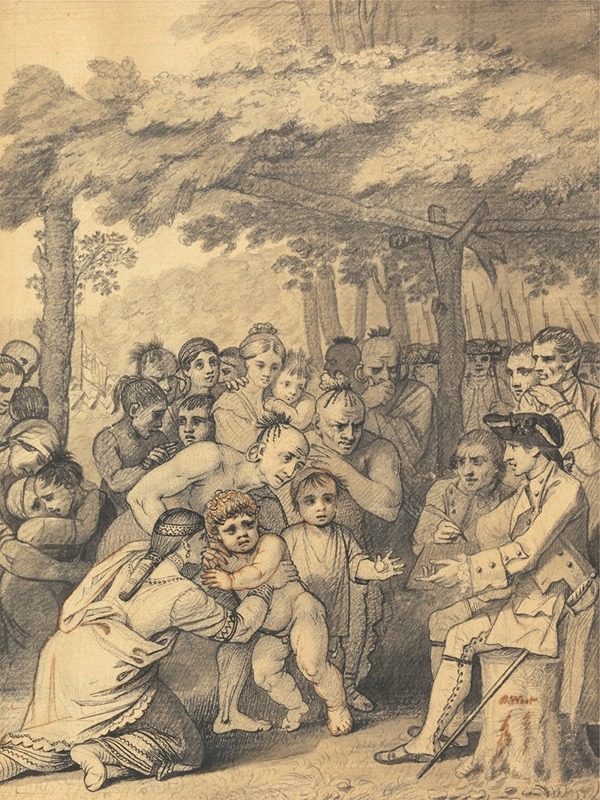
The Indians Delivering up the English Captives to Colonel Bouquet near his camp at the folks of Muskingum in North America in November 1764, 1765
A hand-painted replica of Benjamin West’s masterpiece The Indians Delivering up the English Captives to Colonel Bouquet near his camp at the folks of Muskingum in North America in November 1764, 1765, meticulously crafted by professional artists to capture the true essence of the original. Each piece is created with museum-quality canvas and rare mineral pigments, carefully painted by experienced artists with delicate brushstrokes and rich, layered colors to perfectly recreate the texture of the original artwork. Unlike machine-printed reproductions, this hand-painted version brings the painting to life, infused with the artist’s emotions and skill in every stroke. Whether for personal collection or home decoration, it instantly elevates the artistic atmosphere of any space.
"The Indians Delivering up the English Captives to Colonel Bouquet near his camp at the folks of Muskingum in North America in November 1764" is a painting created by the Anglo-American artist Benjamin West in 1765. This artwork is a historical depiction of a significant event during the aftermath of Pontiac's War, a conflict between Native American tribes and the British Empire following the French and Indian War.
Benjamin West, known for his historical paintings, was born in Pennsylvania in 1738 and later moved to England, where he became a prominent figure in the art world. His works often focused on contemporary events and historical subjects, and he was instrumental in the development of history painting as a genre.
The painting portrays the moment when Native American leaders returned English captives to Colonel Henry Bouquet, a Swiss-born British Army officer, near his camp at the forks of the Muskingum River in present-day Ohio. This event took place in November 1764, following a series of negotiations and military actions aimed at ending hostilities between the British and various Native American tribes.
Colonel Bouquet played a crucial role in these negotiations. He was known for his successful military campaigns during Pontiac's War, particularly the relief of Fort Pitt and the subsequent expedition into the Ohio Country. His efforts culminated in the Treaty of Muskingum, which required the return of captives taken by Native Americans during the conflict.
West's painting captures the dramatic and emotional moment of the captives' return. The composition includes Native American figures, British soldiers, and the captives themselves, highlighting the cultural and emotional complexities of the event. The artwork reflects West's interest in accurately portraying historical events and his skill in capturing human expressions and interactions.
The painting is notable for its historical significance and artistic merit. It provides insight into the relationships between Native Americans and European settlers during a turbulent period in North American history. West's attention to detail and his ability to convey the gravity of the situation make this painting an important work for understanding the historical context of the time.
Today, "The Indians Delivering up the English Captives to Colonel Bouquet" is recognized as an important piece of historical art. It serves as a visual document of the events surrounding Pontiac's War and the complex interactions between different cultures in colonial America. The painting is housed in the Royal Ontario Museum in Toronto, Canada, where it continues to be studied and appreciated for its historical and artistic value.





